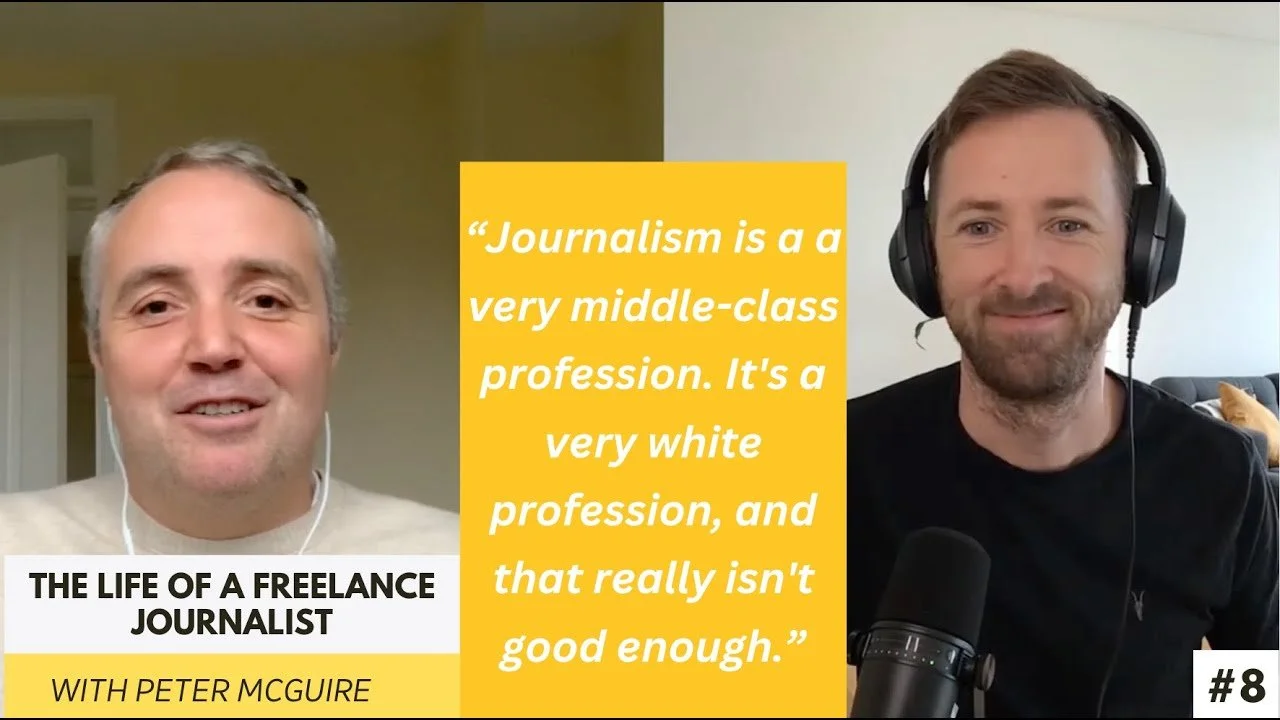Self-Driven Education
The relevance of school subjects
I spoke to a group of 5th a 6th year students in Glasnevin recently about finding work that they love. It was a 40 minute interactive talk so I won’t go into all of the details here. However, one of the things that I wanted to pass on to them was with regard to the relevance of their current subjects. I gave them the example of Conor McGregor because I thought that would prove to be an interesting example of someone with an eclectic set of skills. Prompting the students with questions, I asked:
Q: What subjects would he need to focus on to be in good physical condition?
A: P.E.
Q: What about biology, in terms of physiology and nutrition?
A: Yea, that’s important.
Q: What about when he makes contracts with the UFC or does business deals with advertisers?
A: Business studies probably.
Q: And if he needs to talk to his accountant or financial controller?
A: Business studies again. Or accounting.
Q: What about when he does interviews, documentaries or panel discussions? What does he use then?
A: English.
Of course these subjects are only the basics of what he needs, but I was hoping to portray the importance and the relevance of the course material to the students, in a real world context. Then, if they transferred that style of thinking to someone they admire, someone they would like to model - hopefully they would be able to do a similar exercise.
The ultimate wish would be if the students can see the relevance of what they’re learning, they start to want to study it for themselves. Then the motivation is intrinsic and therefore much stronger than the extrinsic alternative. This is where self-learning comes in. For me, that is one of the best gifts we can give children growing up - the passion and desire to learn for themselves and to learn to better themselves. Then, the sky is the limit. Of course, it’s not just me who thinks like this - to borrow a quote:
“In nine months, a group of children left alone with a computer - in any language - would reach the same standard as an office secretary in the West.”
Sugata Mitra, an education scientist from India also believes in child-driven education. Check out his excellent TED Talk below:
“Experiments show that children in unsupervised groups are capable of answering questions many years ahead of the material they’re learning in school. In fact, they seem to enjoy the absence of adult supervision, and they are very confident of finding the right answer.”
Ricardo Semler, an organisational change-maker from Brazil believes that we can harness 'radical wisdom' for teaching children. Check out his amazing TED Talk below:
“One of the things that is very silly - and I hear from educators all the time - is that schools essentially teach kids to learn. They don’t need school for that. Learning is what they do best.”
Sir Ken Robinson, an educator from the UK, speaks wonderfully about his ideas for reform in education. It's hard to not agree with him. Check out his insightful TED Talk below:
“Human communities depend upon a diversity of talent, not a singular conception of ability.”
Children are required to be academic, not sporty or artistic. Why?
I have often wondered why we expect all of the young people in our society today to be academic, when we know that’s not the way everyone works best - I wrote in dept about multiple intelligences in a previous blog post, but I don’t think it’s something that’s well recognised. We expect an academic student and a sporty student to both be academic inside the classroom. However, we don’t expect the same academic and sporty students to both excel on the sporting field. Why not? Perhaps it’s not deemed as relevant.
I’m not suggesting that we reform the eduction system or that we don’t expect a sporty or artist person to study hard inside the classroom - I’m suggesting that we provide an environment and enough encouragement for students with non-academic interests to really flourish. Or if they are failing inside the classroom, what are they excelling at outside the classroom?
I firmly believe that everyone has the ability to be an expert at something.
I hope you enjoyed this post and thanks for reading. Ronan










